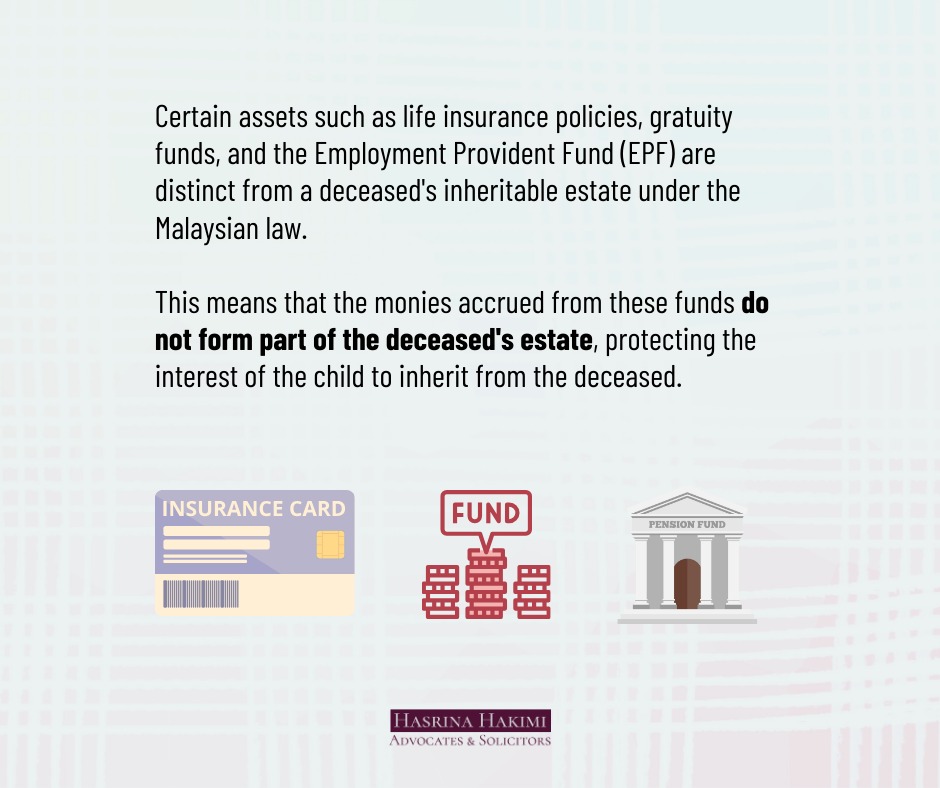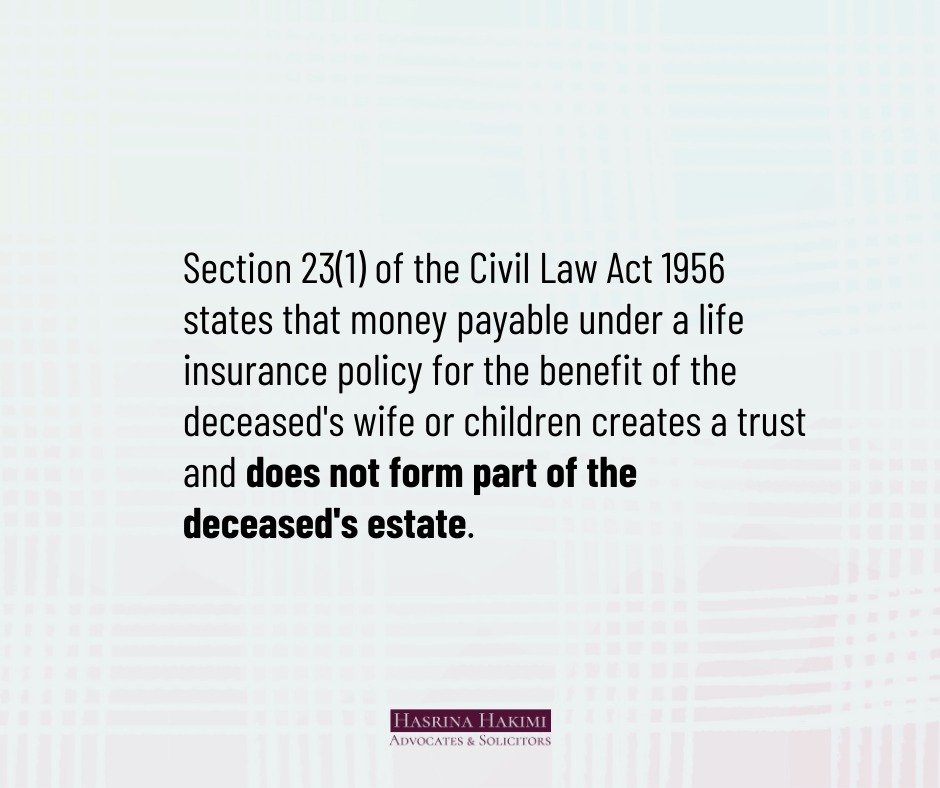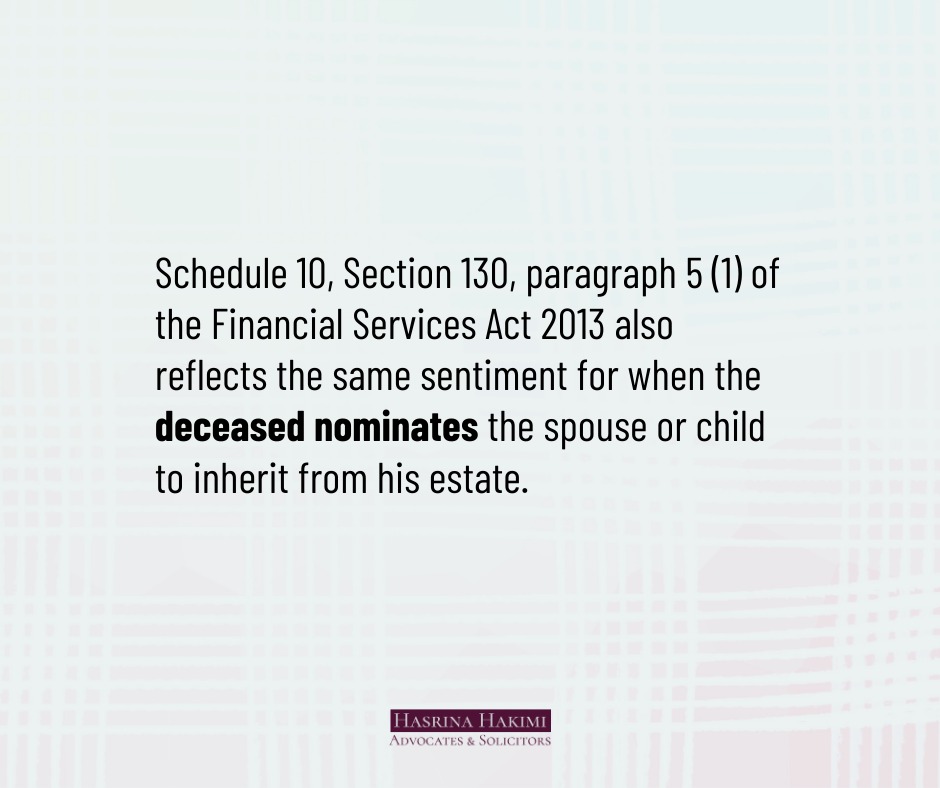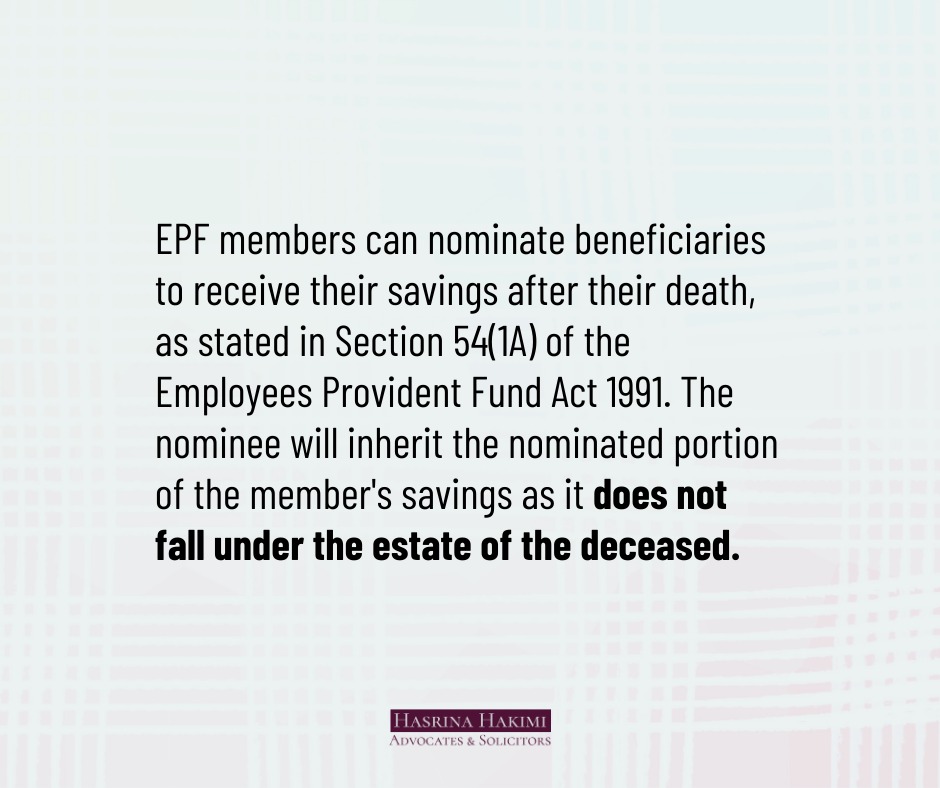




Under the Malaysian Law, there are certain assets or distributions that are considered distinct from a deceased’s inheritable estate such as monies derived from life insurance policies, gratuity funds or the Employment Provident Fund (“EPF”). This means that any monies accrued from these funds do not automatically form part of the deceased’s estate which would in turn protect your interest to inherit from the deceased as a child.
This is evident in Section 23(1) of the Civil Law Act 1956 which expressly states that monies payable under any life insurance policy and expressed to be for the benefit of the wife or children of the deceased shall create a trust, thus do not form part of the estate of the deceased. Schedule 10, Section 130, paragraph 5 (1) of the Financial Services Act 2013 also reflects the same sentiment for when the deceased nominates the spouse or child to inherit from his estate. Section 54(1A) of the Employees Provident Fund Act 1991 further provides that EPF members may make nomination for the purpose of payment of credit after the death of the member. Thus, the nominee would be entitled to inherit the nominated portion of the deceased’s EPF savings as it does not fall under the estate of the deceased.
The Federal Court case of How Yew Hock (Executor Of The Estate Of Yee Sow Thoo, Deceased) v Lembaga Kumpulan Wang Simpanan Pekerja [1996] 2 MLJ 474 upheld the above principle in regards to the status of the EPF nomination. The court in this case referred to :
“The Law of Succession (4th Ed) by Anthony R Mellows (at p 10):
A nomination is a direction to a person who holds funds on behalf of another to pay those funds in the event of death to a nominated person. In many cases, nominations operate by statute … However, there can also be non-statutory nominations, particularly in connection with pension schemes. The rules of many pension schemes provide, in essence, that if the employee dies during the course of his employment the amount of his contributions will be paid to a person nominated by the employee in writing, and in the absence of any nomination, to the employee’s personal representatives. Where a nomination is made, it does not operate as a will. While the documents does affect the devolution of property on death, the property passes directly from the fund to the nominee, and at no time forms part of the estate….”
It was held that the EPF nomination took effect as a contractual arrangement, thus any contributions and interests derived from it did not form part of the estate of the deceased.
However, there is an exception to the abovementioned rules for when the deceased is a Muslim, in which is applicable to when the deceased is a convert (mualaf). Section 24 of the Civil Law Act 1956 provides that when the right to the estate of an intestate person is accrued to the government, the estate or proceeds thereof shall be utilised for public purposes as the Yang di-Pertuan Agong thinks proper and directs. Section 25 of the Civil Law Act 1956 also states that the disposal of any property through this shall not affect the disposal according to Muslim Law.
The Financial Services Act 2013 under Schedule 10, Section 130, paragraph 6 (1)(2)(3) also follows the same exception as the nominee shall only inherit the money as an executor and not a beneficiary to which any money derived from the life insurance policy shall be distributed according the relevant law applicable to the policy owner, which in the present situation would be Islamic Law UNLESS it is expressly stated in the nomination form that the deceased intended for the nominee to receive the benefit as a beneficiary and not merely as an executor.
